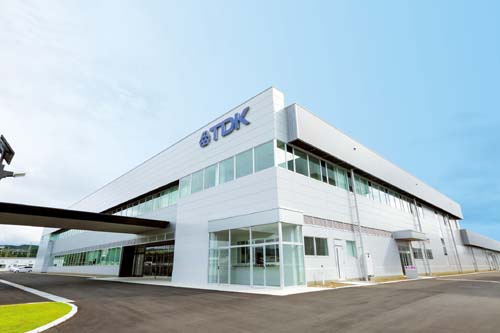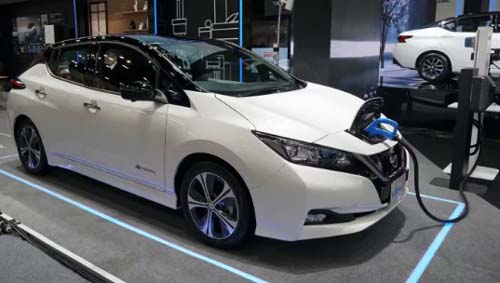
TDK to build $380m EV component factory in Japan
Newswire
Tokyo: Japanese electronics manufacturer TDK will spend roughly 50 billion yen ($383 million) to construct a domestic factory that makes parts for electric vehicles, Nikkei has learned, in a move that follows a growing trend of locating capacity at home due to supply chain pressures and the weak yen.
The new facility will make multilayered ceramic capacitors and be located next to an existing plant in Kitakami, a city in Iwate Prefecture. The prospective factory will be up and running by the end of 2024.
TDK plans to double the companywide capacity for making the capacitors, although the exact volume has not been disclosed. This will be the company’s first new capacitor plant in 16 years. The investment will be TDK’s largest-ever in expanding capacity for an electronic component.

The company joins other Japanese manufacturers in building domestic plants in response to economic security concerns regarding China, especially in light of Beijing’s ongoing tensions with Washington. The disrupted international supply chain due to the pandemic is also a factor.
Apple supplier Murata Manufacturing, for instance, is spending roughly 12 billion yen to build a capacitor plant in Shimane Prefecture. Mitsubishi Electric will invest 20 billion yen to construct a facility in Aichi Prefecture that will make products for factory automation.
Taiwan Semiconductor Manufacturing Co., the world’s largest contract chipmaker, is joining Japanese partners Sony Group and Denso to build an $8.6 billion semiconductor plant in southern Japan’s Kumamoto Prefecture.
The weak yen has hastened the shift home, as the currency has depreciated to a point not seen in two decades. In the past, such a development would be a boon to export-heavy manufacturers, but the currency windfall has diminished in recent years due to the rise of offshoring capacity. This dynamic has the potential of promoting a greater expansion of onshore manufacturing.
Ceramic capacitors stabilize electric currents in circuit boards. The components are indispensable for EVs and smartphones.
EVs are expected to ramp up demand for capacitors. Each EV requires about 10,000 capacitors, or roughly double the number for gasoline vehicles. Global sales for EVs will rise to 35.44 million units in 2030, according to British research firm LMC Automotive, amounting to a more than sevenfold increase from 2021.
Japanese companies are strong players in capacitors. Murata holds the top global share of about 40% while TDK is in fourth place with a roughly 6% slice. In China, the manufacturing sector is upgrading domestic production of semiconductors, capacitors and other electronic components.
